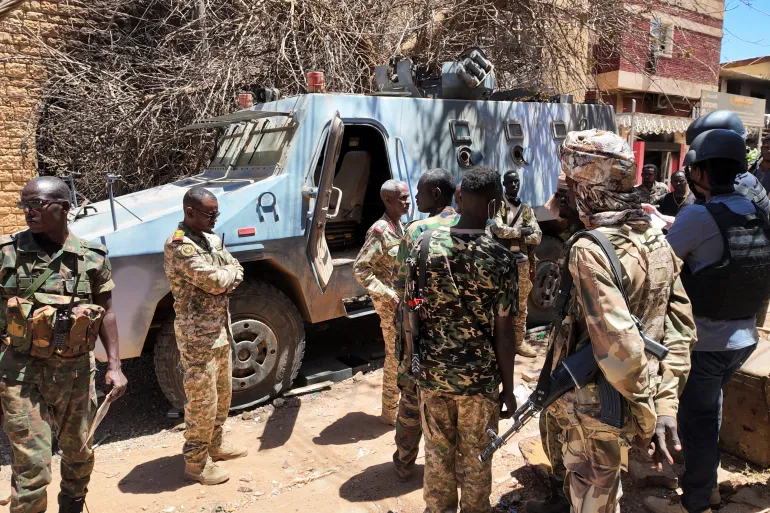KHARTOUM, Sudan — Sudanese Armed Forces (SAF) chief Abdel Fattah al-Burhan declared, “Khartoum is free” on Wednesday after military forces reclaimed control of the capital’s airport from the paramilitary Rapid Support Forces (RSF).

Speaking from the presidential palace, which government troops seized on Friday, al-Burhan marked his first return to the site in nearly two years. The military’s recent advances represent a significant shift in the two-year-long conflict between the SAF and RSF.
Earlier on Wednesday, SAF soldiers surrounded key areas near Khartoum airport, forcing RSF fighters to retreat across a bridge. According to military sources, troops also encircled the Jebel Awliya area, south of central Khartoum—the last major RSF stronghold.
“The army secured both sides of the Manshiya Bridge, which crosses the Blue Nile River, leaving the Jebel Awliya Bridge as the only remaining RSF-controlled crossing out of the area,” a military official told AFP on condition of anonymity.
Since April 2023, Sudan’s military has been engaged in a war against the RSF, launching a campaign this week to drive paramilitary forces from central Khartoum.
RSF fighters had occupied Khartoum airport since the conflict began. Witnesses reported that RSF units have been retreating southward toward Jebel Awliya, using bridges to withdraw from the capital to neighboring Omdurman.
Military analysts suggest that while the SAF’s control of Khartoum marks a turning point, the broader conflict is far from over.
“The war is shifting to the western Darfur region and southwest Sudan,” said Al Jazeera’s Hiba Morgan, reporting from Khartoum. “The RSF’s power has been greatly reduced, but the paramilitary group still has forces in other regions.”
Despite the army’s gains, experts caution that the RSF’s retreat does not signify an end to the war.
“The RSF is repositioning itself in West Sudan, particularly in Darfur, where it still controls significant territory,” said Amgad Fareid Eltayeb of Fikra for Studies and Development in Cairo. “The conflict persists, especially with ongoing foreign support, notably from the UAE.”
Elbashir Idris, an independent Sudanese analyst, noted the rapid collapse of RSF forces in Khartoum.
“Videos from residents and former prisoners show people celebrating in the streets after RSF forces withdrew,” he said. “This victory is welcomed by Sudanese who lost their homes in the conflict.”
The war, now nearing its two-year mark, has claimed tens of thousands of lives and displaced over 12 million people, creating one of the world’s largest hunger and displacement crises.



